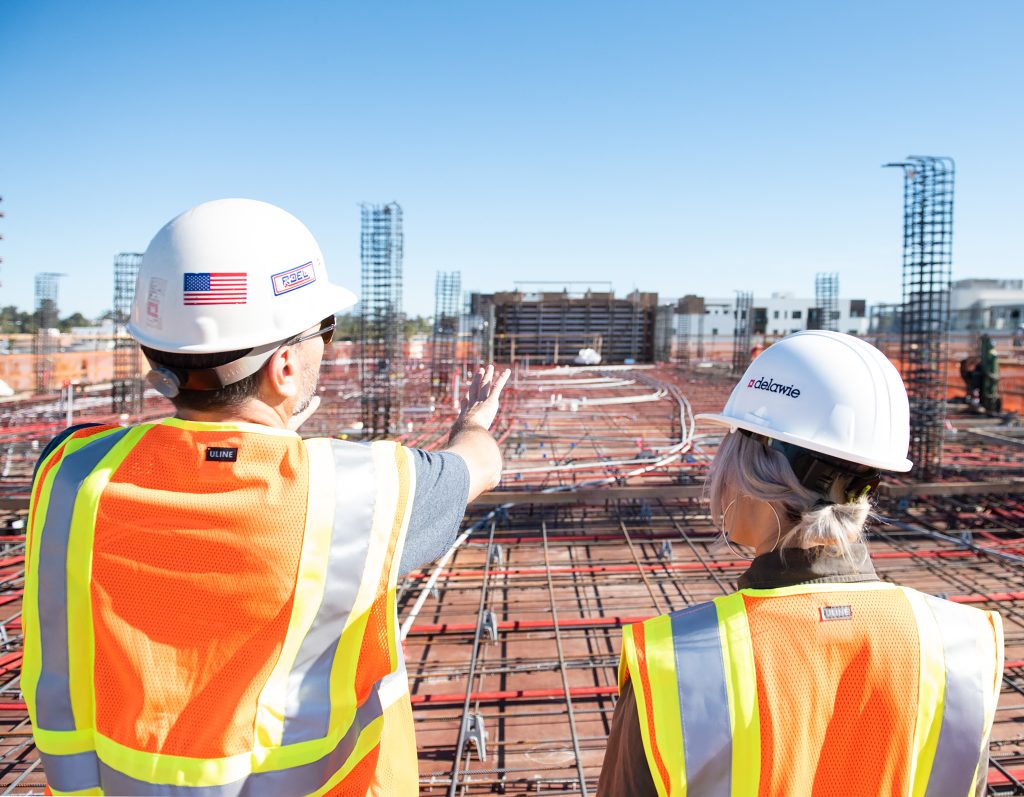
The world around us is built — literally — by the hands, minds, and creativity of construction professionals. From towering skyscrapers to smart homes and sustainable infrastructure, the construction industry shapes our future in tangible, lasting ways. For those seeking meaningful, stable, and well-paying work, Careers in construction offer an exciting and rewarding path forward.
Whether you’re just entering the workforce or considering a career change, now is the perfect time to explore opportunities in construction. With the industry booming and skilled workers in high demand, careers in construction promise not just jobs but lifelong growth, purpose, and success.
Why Choose a Career in Construction?
1. A Growing Industry with Endless Opportunities
Construction is one of the fastest-growing sectors globally. According to industry reports, millions of new positions will open over the next decade as infrastructure expands and older workers retire. That means more demand for electricians, project managers, welders, carpenters, and engineers — and more chances for you to build a lasting career.
Unlike many industries facing automation, careers in construction require hands-on expertise, problem-solving, and creativity — skills that can’t be replaced by machines.
2. Job Security and Competitive Pay
Construction careers offer some of the most stable employment opportunities today. Skilled tradespeople are essential for every project — from residential developments to renewable energy installations.
Entry-level workers can earn competitive wages right from the start, and with experience, income potential rises significantly. Many positions also include benefits such as healthcare, retirement plans, and paid training.
For example, skilled trades like electricians or heavy equipment operators often earn salaries comparable to — or even higher than — those of college graduates.

3. No College Degree Required
One of the greatest advantages of careers in construction is accessibility. You don’t need a four-year college degree to get started. Many roles only require a high school diploma or equivalent, followed by specialized training or apprenticeships.
Organizations like Associated Builders and Contractors provide high-quality training programs that allow individuals to learn valuable skills while earning an income. Apprenticeships are a great way to “earn while you learn,” combining classroom instruction with hands-on experience.
4. Opportunities for Advancement
The construction industry rewards hard work, dedication, and skill. Entry-level workers can quickly advance to supervisory or management positions with experience and additional training. Many project managers, estimators, and even company owners began as apprentices or laborers.
With careers in construction, your growth potential is virtually unlimited. You can specialize in areas like green building, project management, safety compliance, or advanced technologies such as Building Information Modeling (BIM).
Exploring Different Careers in Construction
Construction is far from a one-size-fits-all field. It offers a variety of roles suited to different interests, skill sets, and career goals.
1. Skilled Trades
These hands-on roles form the foundation of every construction project.
- Electricians install and maintain electrical systems.
- Plumbers ensure water and waste systems function efficiently.
- Carpenters build frameworks, furniture, and structures.
- Welders join metals for bridges, buildings, and vehicles.
- HVAC Technicians create comfortable indoor environments.
Each of these paths offers strong earning potential and long-term career growth.
2. Construction Management
If you enjoy planning, leadership, and logistics, management roles may be the perfect fit. Construction managers oversee projects from start to finish — ensuring that everything runs smoothly, safely, and on budget.
With the right training and experience, construction managers can move into executive-level positions or even start their own contracting businesses.
3. Engineering and Design
For those passionate about innovation, sustainability, and precision, engineering roles are integral to modern construction. Civil engineers, architects, and structural designers bring projects to life through cutting-edge technology and creative vision.
As green building practices and sustainable materials grow in popularity, engineers with expertise in renewable energy and environmental design are in especially high demand.
How to Start a Career in Construction
1. Get Educated or Trained
While some entry-level positions require little prior experience, formal training greatly enhances your opportunities. You can enroll in technical schools, community colleges, or apprenticeship programs offered by organizations like Associated Builders and Contractors.
2. Obtain Certifications
Certifications can help you stand out in the competitive job market. Examples include:
- OSHA Safety Certification
- NCCER (National Center for Construction Education and Research) credentials
- Specialized trade licenses (e.g., electrical or plumbing)
These credentials not only prove your competence but also open doors to better-paying positions.
3. Gain Hands-On Experience
Construction is all about practical skills. On-the-job training and apprenticeships provide the best way to learn — giving you the confidence and expertise to excel.
4. Network and Stay Informed
Joining professional organizations like Associated Builders and Contractors connects you with mentors, employers, and resources. Attend trade shows, workshops, and industry events to stay up to date with trends and job opportunities.
The Future of Careers in Construction
Technology and sustainability are reshaping the construction industry. Modern tools such as drones, 3D printing, and augmented reality are improving efficiency and accuracy on job sites. At the same time, green building practices are driving demand for energy-efficient designs and eco-friendly materials.
This means that careers in construction are becoming more advanced, exciting, and essential than ever. Professionals who embrace new technologies and sustainability practices will have a competitive edge and long-term job security.
Benefits of Choosing Careers in Construction
1. Tangible Results
One of the most rewarding aspects of construction work is seeing the results of your efforts. From homes to highways, you’ll create something that lasts — something you can proudly point to and say, “I helped build that.”
2. Teamwork and Community
Construction teams work closely together to achieve common goals. This fosters strong camaraderie and collaboration. You’ll also have the satisfaction of knowing your work contributes directly to your community’s development.
3. Lifelong Learning
Construction is constantly evolving. New materials, tools, and technologies mean that you’ll always be learning, adapting, and growing. This makes careers in construction ideal for those who enjoy continuous professional development.
Associated Builders and Contractors: Your Partner in Success
Associated Builders and Contractors (ABC) is dedicated to helping individuals succeed in construction careers. With industry-leading training programs, certifications, and networking opportunities, ABC equips professionals with the tools they need to thrive.
Whether you’re an aspiring apprentice or an experienced tradesperson seeking advancement, ABC offers resources tailored to every stage of your career.
By joining Associated Builders and Contractors, you’ll gain access to mentorship, job opportunities, and ongoing support from a trusted community of professionals.
Frequently Asked Questions (FAQ)
1. What qualifications do I need for careers in construction?
Most entry-level roles require a high school diploma or equivalent. From there, you can pursue apprenticeships or training programs through organizations like Associated Builders and Contractors to gain hands-on experience and certifications.
2. Are construction careers suitable for women?
Absolutely. Women are thriving in all areas of construction — from project management to skilled trades. The industry actively encourages diversity and inclusion, offering equal opportunities for everyone.
3. How can I advance my career in construction?
To grow your career, focus on continuous learning. Obtain certifications, gain leadership experience, and stay informed about new technologies. Networking with industry professionals also opens doors to advancement opportunities.
Conclusion: Build Your Future Today
The demand for skilled professionals in construction has never been higher. With strong job security, excellent pay, and endless opportunities for growth, careers in construction offer a bright, fulfilling future for those ready to build it. Explore our homepage now to stay ahead in the digital world.




